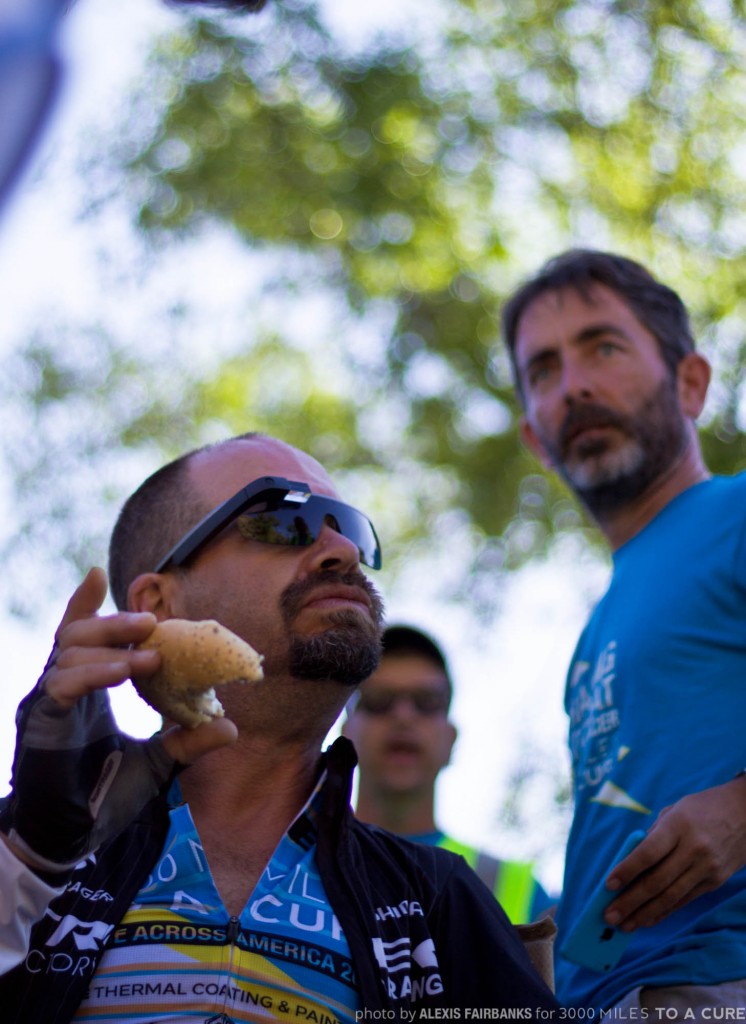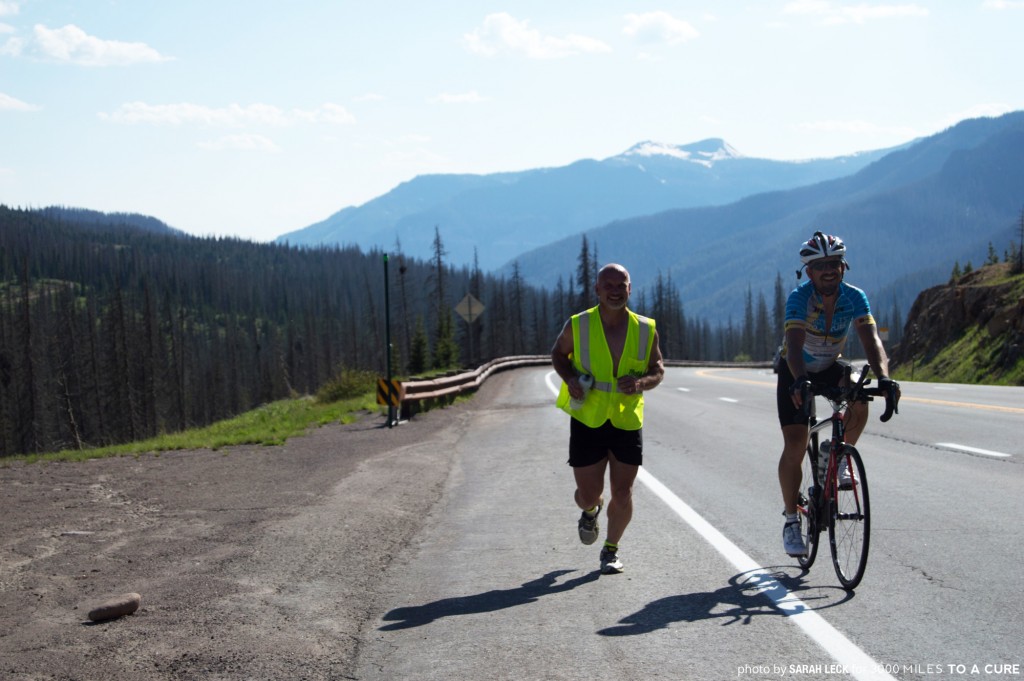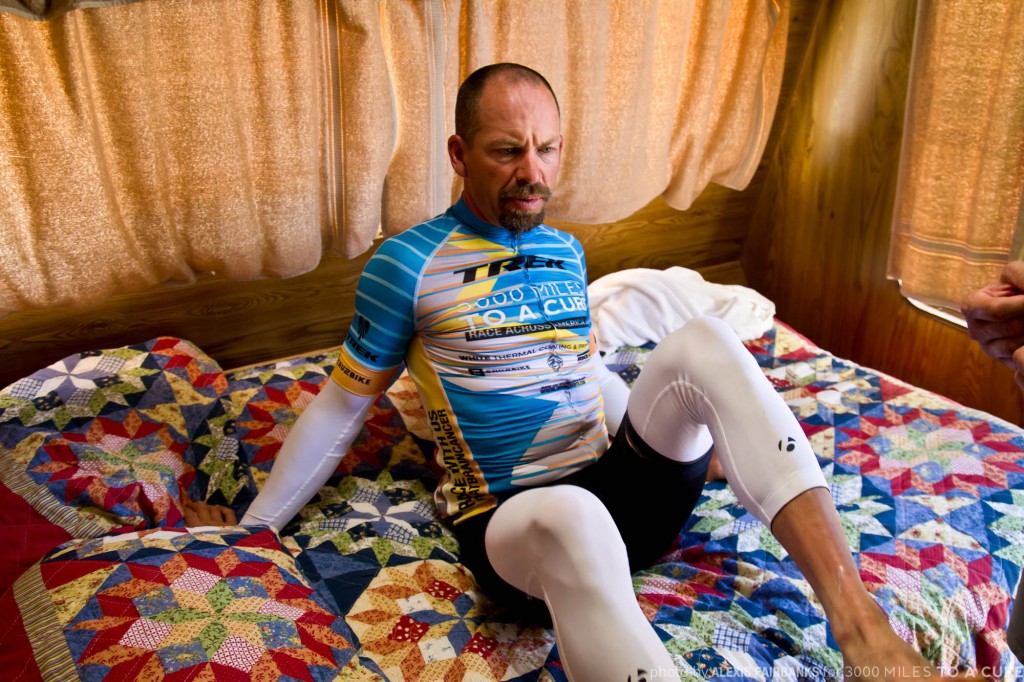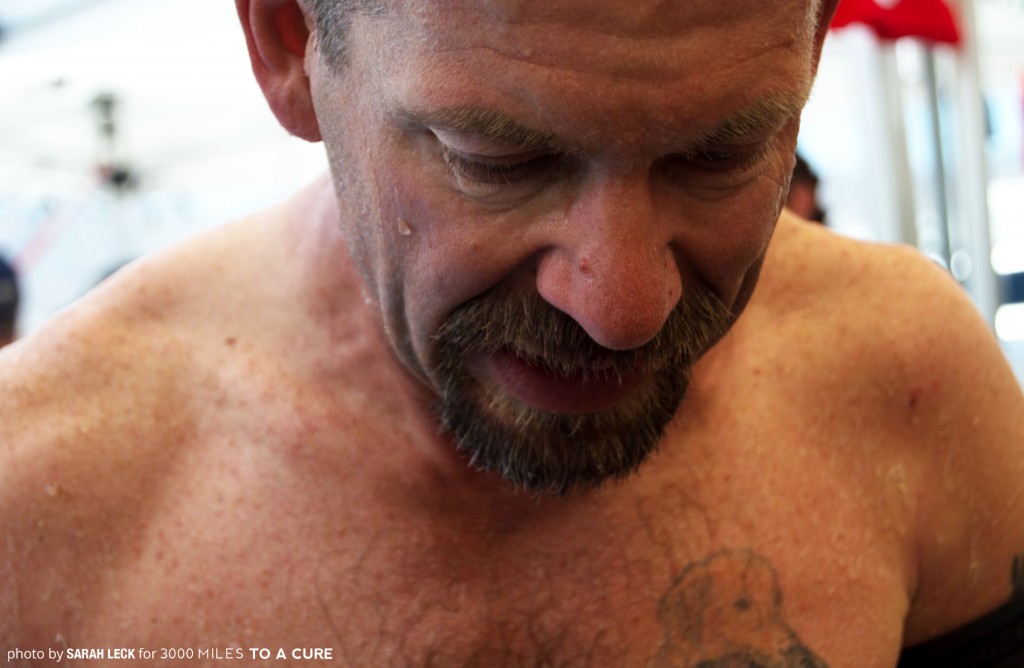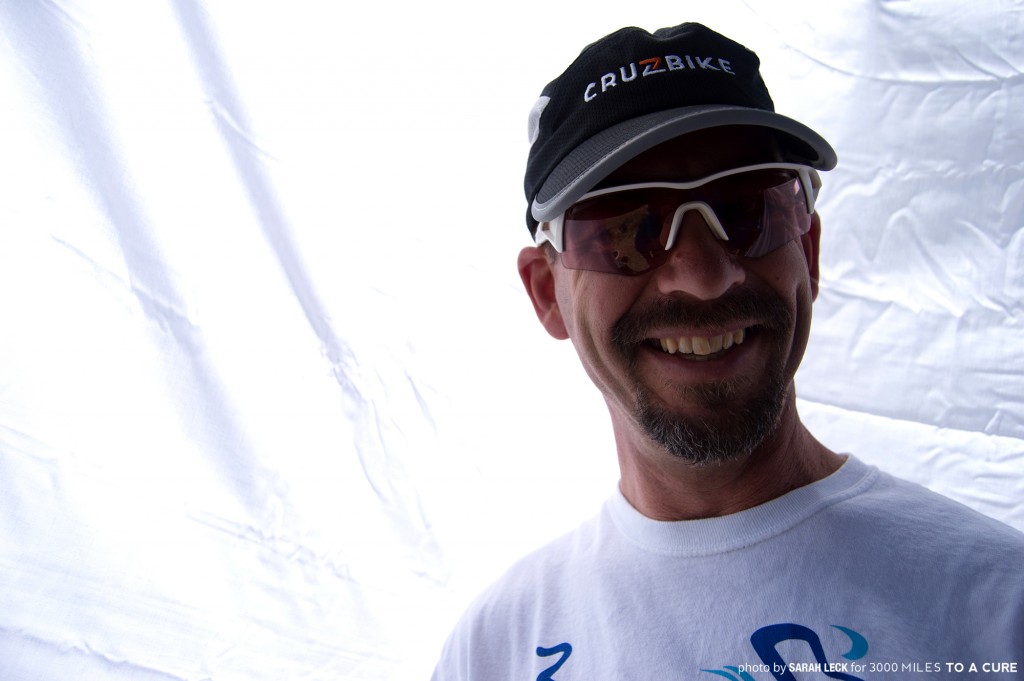
RAAM peels you back. Brain cancer peels you back.
–Maria Parker, RAAM finisher
Rob White is a 2015 Race Across America (RAAM) contestant, raising money with his ride for brain cancer research alongside 3000 Miles to a Cure.
But who is he?
Let’s start with the physical and go from there:
Rob stands a couple inches above average height, with ropy arms, a thick torso, and the swollen calves that often protrude from powerful cyclists. He is muscular, but not in the way of actors or bodybuilders. The muscles of his arms and chest look like they’ve been laid down in thick slabs by repetitive physical labor–not sculpted carefully by time in the gym.
He talks with a Wisconsin accent–his home state, and where he still resides–and his sentences are often accompanied by “I guess” used in a conciliatory manner. He’s relatively soft-spoken, but smiles a lot.
He is a father, with one daughter and one son, both in college.
He is an outdoorsman, who enjoys hunting, fishing, and bird-watching. His second passion, besides cycling, is spending time in nature.
He is a painter–with his own small business–“It’s all I know how to do, so that’s what I do,” he said.
He is an athlete, albeit one who still laughs at the title: “I’m a painter. I was smoking up until 6 years ago,” he chuckled, “I don’t see myself as an athlete. I’m just a guy who likes to ride his bike a bunch.”
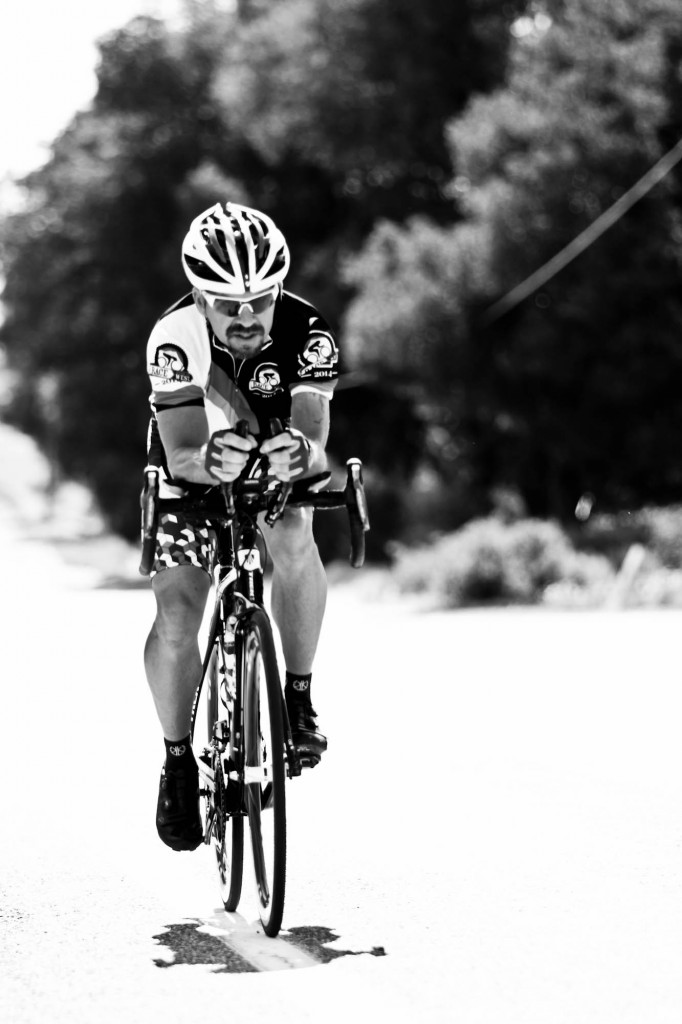
Whatever he may call himself, he is a man with a track record of endurance feats (he finished third in the 860 mile Race Across the West last year)–which extends farther back than his cycling career. As a young man, he says, he walked 35 miles “half a dozen times” to visit a girl he was dating.
He is a man of faith, a Roman Catholic, though he is reticent about his belief: “I tried to keep that kind of quiet because I don’t know if people understood,” he said near the end of our interview, “but apparently a lot of people….” and he paused here as if searching for the right phrase, “do get it.” He talked a little of the redemptive power of suffering–suffering to help others–in the tradition of the saints:
“To me this suffering, this pain, is being offered to those who with no choice at all have this brain cancer that they can’t choose. You know?” White said. “That’s where all this is being offered to. To…to…those people that… don’t need to suffer.”
He is also a motivated man. A close friend’s son has brain cancer (in remission)–and Rob sees the fight against brain cancer as part of a bigger struggle against all cancers–his sister-in-law died of ovarian cancer after a long struggle with the disease.
Most of all, he is a good and humble man–a man who paused his training a few days before the biggest race of his life, just to keep a few car-troubled media interns hydrated, entertained, and supplied with ice cream sandwiches.
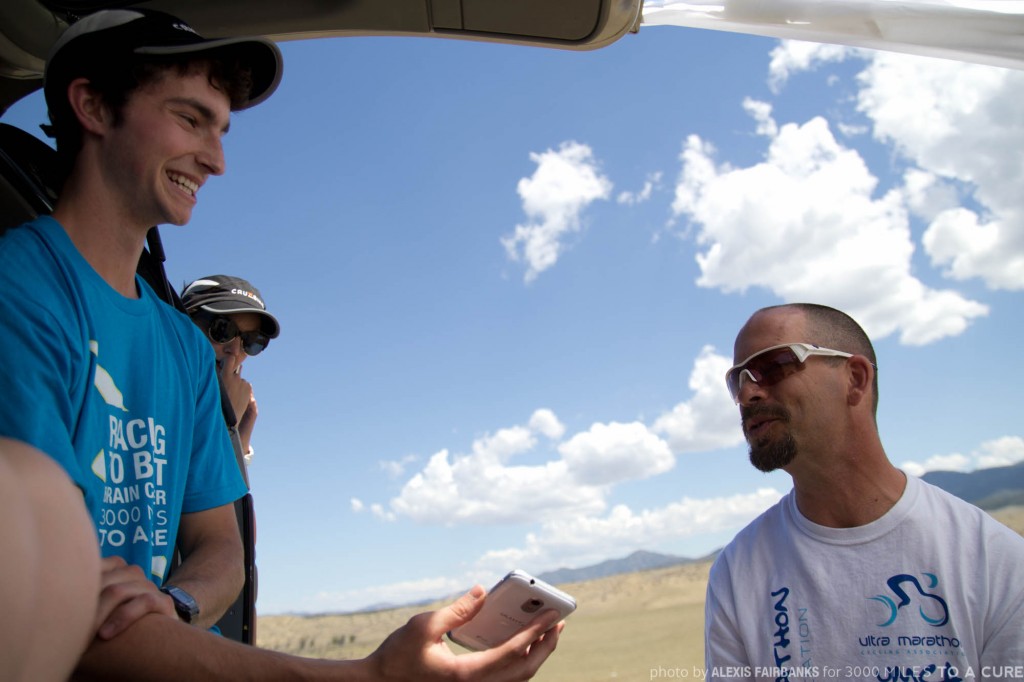
Rob keeping us laughing after some car trouble.
So, we know who Rob White is.
But who will he be during RAAM?
Race Across America is a brutal, 3000 mile cycling battle against the harshest geography the continental United States has to offer. Racers ride under their own power, with minimal sleep (the race clock never stops) until they either reach Annapolis, are disqualified for missing a time cutoff, or quit. Half of RAAM entrants (who have to complete grueling ultra-cycling qualifiers to even enter the race) do not successfully finish. Many racers vomit, cry, and experience hallucinations on their journey across the country.
It’s an event that peels you back with its cruelty and beauty.
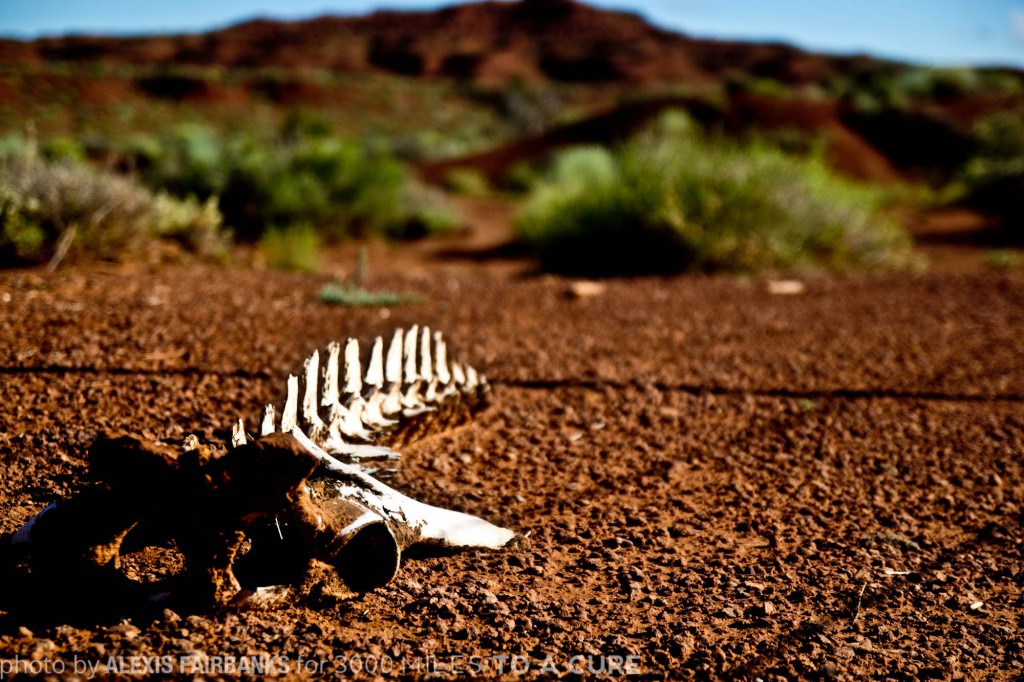
So, will Rob keep his kindness and discipline in the heat of the desert? Will he keep smiling through the long plains of Colorado and Kansas? Will his courage shatter in the winding hill-ways of the Appalachians?
We can watch as he undergoes the pain and suffering of this self-chosen trial. We can see if he makes good out of it–see if he finds transcendence in it. And–here is where my great fascination with RAAM lies–we can wonder how we would do in a situation of similar difficulty.
That fascination is widespread among the humans I’ve known–maybe not for RAAM, specifically, but for war stories, journey narratives, and lifeboat tales. It exists, I think, because many of us have experienced great trials–and we all know innately that we will experience great trials in the future. Trials filled with pain, with suffering, and with the presence of death. Trials like brain cancer.
While we wait for or cope with these trials, we can look to those who embrace these tests: those who seek them out–a little baffled, maybe by their decision, but inspired by their courage and eager to learn from their struggles. If Rob’s example in this trial of suffering teaches us something, or if it gives us hope–then he and the saints are right: suffering is redemptive.
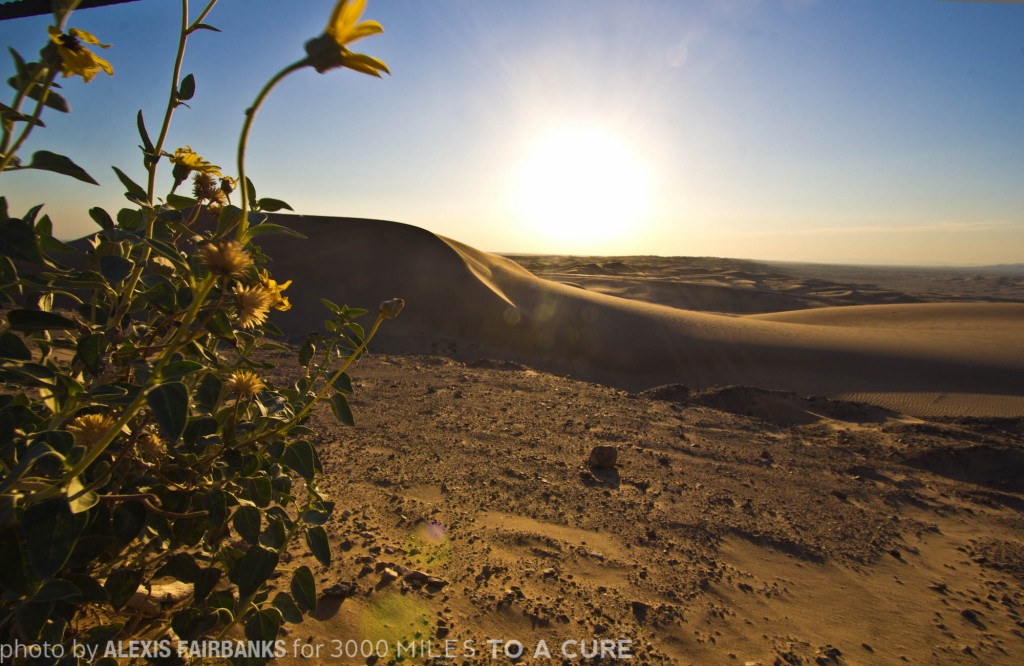
read more

